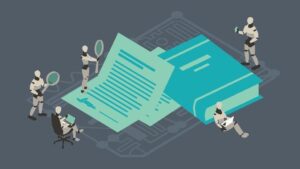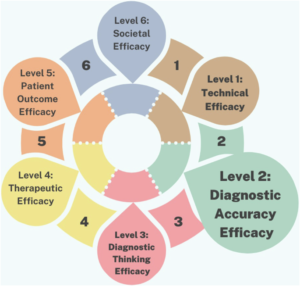AI in Creative Work: A New Twist on an Old Practice

The Debate Over Copyright and AI: A Long-Standing Issue
The Concerns of Authors
Recently, several authors expressed their frustration regarding Meta’s use of their work to develop artificial intelligence (AI) models. They argue that this use constitutes copyright infringement, prompting calls for the UK government to take action against the company. However, this situation raises a broader question: Hasn’t this kind of borrowing existed for centuries?
The Nature of Inspiration
Throughout history, creators have relied on the work of others to build upon ideas and advance their fields. This phenomenon is not limited to any one art form. For example:
- Literature: Ian McEwan drew inspiration from LP Hartley’s The Go-Between, while George Orwell was influenced by Yevgeny Zamyatin’s We.
- Genres: The cosy crime genre, popularized by authors like Richard Osman, often features styles and themes reminiscent of previous works. This is a common practice where new creations echo the elements of successful predecessors.
Generating New Ideas from Old Ones
The act of building on existing works is a fundamental characteristic of human creativity. Each new invention, book, or artistic piece can often be traced back to earlier influences. This iterative process has been essential in evolving literature, science, and even technology. The Society of Authors’ CEO, Anna Ganley, mentioned that writers are currently "up in arms" about the situation with AI. But the concept of training on existing material is not new.
The Publishing Industry and Creative Trends
In the publishing world, trends often emerge where new works mimic successful ones. This has led to the phenomenon known as "bandwagon books." These are works that closely follow popular themes, styles, and tropes, usually seeking to capitalize on the success of established titles.
Examples of Influence in Various Fields:
- Film Industry: Successful films often spawn sequels and spin-offs that adhere to the original formula.
- Music: Musical trends, such as a particular sound or genre, frequently inspire new artists to create similar music.
The Controversy Surrounding AI
The rapid development of AI technologies has created a unique set of challenges regarding copyright laws. As machines are trained using vast datasets, they inevitably include the works of various creators. This practice raises ethical questions about intellectual property and the rights of authors. Some authors believe that AI training should be regulated more strictly to ensure their work is not used without permission or compensation.
Public Discussion on Copyright and AI
As conversations surrounding copyright infringement and AI continue, several key points are consistently raised:
- Intellectual Property Rights: Creators want to ensure their rights are protected in the digital age, particularly against large corporations like Meta.
- Fair Use vs. Infringement: There’s an ongoing dialogue about where to draw the line between inspiration and copying.
- Evolution of Creativity: It’s essential to recognize that creativity often involves transforming and adapting existing ideas rather than mere duplication.
The Future of Copyright in a Technological Era
As technology advances, particularly with AI’s increasing presence, the legal frameworks governing copyright must also evolve. This will help protect the rights of authors while allowing for the continued growth of creativity in society.
The dialogue on this topic is vital for both artists and tech companies, as it shapes the landscape of intellectual property rights in the 21st century.






